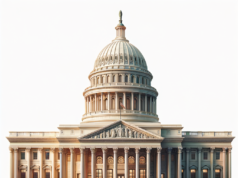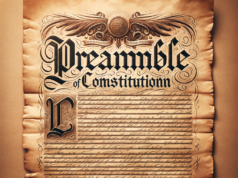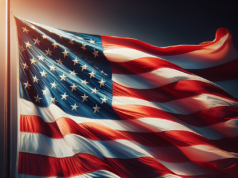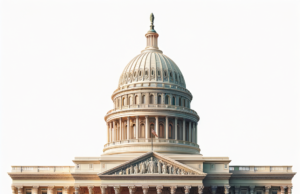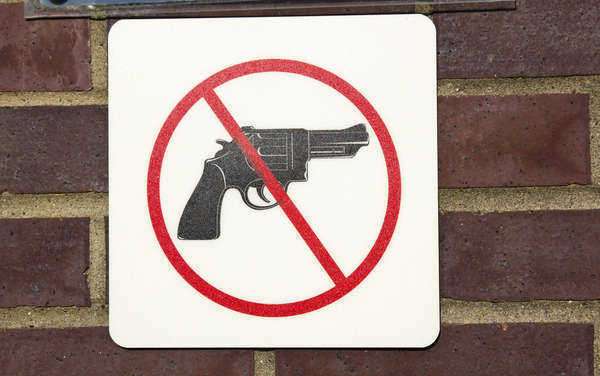
This month, the Senate blocked a plan for expanded background checks on gun purchases. This plan was supposed to extend background checks to those who purchase their firearms online or at gun gun shows, but failed to receive the 60 votes needed to pass in the Senate, receiving only 54 votes in favor and 46 against. Sen. Dianne Feinstein, arguably one of the fiercest gun control advocates in the Senate, proposed a ban on military-style assault weapons that also failed to pass with only 40 votes in favor and 60 against it.
(More on News at LAWS.com, contact Adam for interviews “adama@laws.com”)
The background check amendment, which was drafted by Democratic Senator Joe Manchin of West Virginia and Republican Senator Pat Toomey of Pennsylvania, was seen by many, including President Obama, as the needed compromise that would help to pass gun-control legislation after the Sandy Hook Elementary School shooting perpetrated by Adam Lanza that left 20 children and six adults dead. It was hoped that this amendment would offer the compromise needed to pass in the Senate. However, most Republicans and four Democrats from gun-friendly states voted against it.
Gun control and gun rights are certainly contentious issues in our country that continue to divide public opinion. Opponents of the Manchin-Toomey amendment have emphasised that it only served to infringe upon the right to bear arms guaranteed by the Second Amendment and would do little to keep guns out of the hands of the mentally ill and criminals. Proponents of the bill say that these types of background checks are vital to saving innocent lives. Every year, 30,000 Americans are killed by guns in homicides, suicides or unintentional shootings.
The Violence Policy Center (VPC) is a national, non-profit organization based in Washington, DC that aims to end the yearly death toll and injury from guns through research, education, collaboration and advocacy. The VPC points to the fact that firearms are the only consumer product not regulated for health and safety by a federal agency. The VPC believes that this exception is what has led the gun industry to be able to increase the lethality of firearms. Applying consumer safety standards to guns, the VPC believes, will greatly reduce gun violence.
The following is an interview with Josh Sugarmann, Executive Director of the VPC, on his thoughts and feelings on the failure of the gun control legislation to pass and the work of the VPC in the realm of gun control.
1. How do you feel about the defeat of the gun-control legislation in the Senate?
The Senate votes are the latest example of the unique power that the NRA holds over the U.S. Congress. The battle for effective gun laws will not be won until the vast majority of Americans who want to reduce gun violence make their voices heard: not just in the wake of the most recent tragedy, but in an ongoing effort that reflects the all-too-high price meted out in gun death and injury each day in our nation.
2. What message would you send to those in the Senate who voted against this legislation?
From the assassination attempt of then-Representative Gabrielle Giffords, to the shooting death of Trayvon Martin, to the movie theatre shooting in Aurora, to the tragedy in Newtown, Americans are demanding action on gun violence to protect their communities. And while these tragic and horrific events focus the nation’s attention on the issue, each year guns claim more than 31,000 lives in homicides, suicides, and unintentional deaths. At the same time, states with the most lax gun laws and higher rates of gun ownership have the highest gun death rates–and many of the Senators who voted against the gun bills are from states with the highest rates of gun death [https://www.vpc.org/press/1302gundeath.htm]. In addition, there is a growing awareness that today’s NRA has become nothing less than a trade association for the firearms industry, which contributes tens of millions of dollars to the organization [https://www.vpc.org/press/1104blood.htm]. Just as there will inevitably be future gun tragedies that grip our nation, there will be future votes to stop them. It is time for our federal policymakers to listen to the majority of the American public that wants effective gun policies that will save lives, not just the gun industry-funded arguments of the NRA.
3. How do you think the gun-control movement should move forward from this?
Historically, the gun violence debate has been defined, and all too often decided, on the actions of a small, yet vocal, pro-gun base. Most Americans don’t own guns, and the percentage of American households that do has been shrinking for decades [https://www.vpc.org/press/1104norc.htm]. In the wake of the Newtown mass shooting and the Senate votes, we are seeing a new, engaged, gun violence prevention movement forming: one that will speak for the majority of Americans who want effective local, state, and federal policies to stop gun violence. This movement must grow and expand. With the focus on the Senate votes, less attention has been paid to the successful state measures–for example, assault weapon bans in Connecticut and New York and a ban on high-capacity ammunition magazines in Colorado—that have been passed in the wake of the Newtown tragedy. State efforts must continue as they will drive federal policy. Overall, the changing nature of the gun industry itself—an abandonment of traditional sporting arms and an embrace of increasingly lethal military style weaponry at the expense of public safety—must continue to be a focus of our movement’s public education activities. Most people, if they knew, would be shocked at what the gun industry has become.
4. What is the next step now for the Violence Policy Center now that this legislation has been blocked in the Senate?
The VPC works to reduce gun injury and death in America by approaching firearms violence from a public health perspective and illustrating the need to hold firearms to the same health and safety standards as other consumer products. To this end, the VPC: conducts research on the gun industry, regulatory approaches and firearms violence; develops public policy options and offers analyses of proposals that seek to reduce violence; conducts public education activities through the news media and various organizations; educates opinion leaders and policy makers; supplies technical and policy support to national, state, and local gun violence prevention organizations; and, works to empower and engage organizations not traditionally part of the gun violence debate, but that represent constituencies affected by firearms violence. The VPC will continue these efforts with the goal of aiding and supporting the growing movement to prevent gun violence.
5. What are some of the accomplishments of the Violence Policy Center?
Past VPC policy accomplishments include: identifying, de-funding, and keeping de-funded a multimillion dollar federal program that rearmed thousands of convicted, often violent, felons at taxpayer expense; reducing the number of Type 1 federally licensed gun dealers from a quarter million in 1992 to less than 53,000 today; introducing, through its publication Cease Fire: A Comprehensive Strategy to Reduce Firearms Violence, the concept of comprehensive health and safety regulation of the firearms industry as the most effective approach to reducing firearms violence; first identifying the firearms trafficking threat posed by gun shows; being a leader of the coalition that led to the enactment of the Domestic Violence Offender Gun Ban, which bars individuals convicted of misdemeanor domestic violence crimes from possessing firearms; helping craft policies in Massachusetts and California placing firearms under consumer health and safety regulation; and, first exposing the threat posed by 50 caliber sniper rifles, leading to their being banned in California and legislation introduced in other states.
For more information on the Violence Policy Center, please visit their page. For more information on gun laws and news, please visit our Gun Laws Page.
Interviewed with Josh Sugarmann of the Violence Policy Center, Washington, DC




